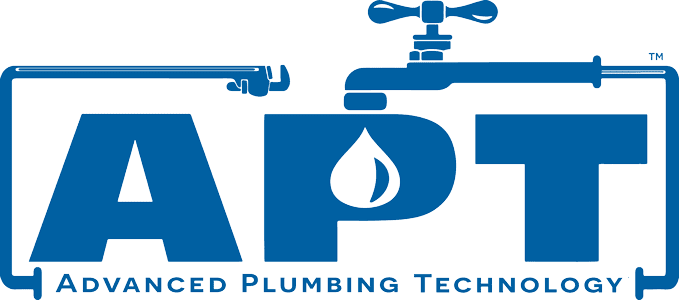The Science Behind Water Heater Efficiency and Longevity
September 24th, 2023Posted by Brian Shoemaker
In the world of modern plumbing and household conveniences, the water heater stands as an unsung hero. Often tucked away in basements or utility rooms, these unassuming devices provide us with the luxury of hot water on demand. Yet, amidst the rush of daily life, we often overlook the intricate science and engineering that contribute to their efficiency and longevity. At Advanced Plumbing Technology, we believe that understanding the inner workings of these devices can empower homeowners to make informed decisions, extend the lifespan of their water heaters, and optimize energy consumption. In this comprehensive guide, we delve into the science behind water heater efficiency and longevity, shedding light on the factors that set the stage for a reliable and high-performing appliance.
The Heart of the System: Anode Rods and Corrosion Prevention
Corrosion, the arch-nemesis of water heaters, can significantly impact their efficiency and lifespan. Enter the unsung hero: the anode rod. This unassuming component, typically made of magnesium or aluminum, serves as a sacrificial lamb, drawing corrosion towards itself and away from the water tank. This simple yet ingenious process is known as cathodic protection.
As water naturally contains minerals and impurities, it can be quite corrosive over time, especially when heated. The anode rod, suspended within the water tank, forms a protective barrier that prevents these corrosive agents from attacking the tank walls. Regular inspection and replacement of anode rods, usually every 3 to 5 years, are vital to ensure their continued effectiveness. This small investment of time and money can extend the life of your water heater significantly.
Energy Efficiency: The Role of Insulation and Sediment Control
In the quest for efficiency, insulation plays a pivotal role. Modern water heaters are equipped with insulating materials that minimize heat loss, ensuring that the water stays hot for longer periods without constant reheating. This translates to reduced energy consumption and lower utility bills.
Sediment buildup is another efficiency adversary that homeowners should be aware of. As water is heated, minerals and sediments naturally separate and settle at the bottom of the tank. Over time, this sediment layer acts as an insulating barrier, making it harder for the heating element to transfer heat to the water. The result? Your water heater works harder and consumes more energy to achieve the desired temperature. Regular flushing of the tank to remove sediment can mitigate this issue and help maintain optimal efficiency.
Temperature Regulation and Pressure Control
Precise temperature regulation is not just about comfort—it’s a science that impacts the longevity of your water heater. Excessive heat can accelerate corrosion and cause unnecessary wear and tear on various components. On the other hand, water that is too cool might foster bacterial growth. Finding the sweet spot ensures both comfort and the well-being of your appliance.
Pressure control is equally critical. Water expands when heated, creating pressure within the tank. A temperature and pressure relief valve (TPR valve) is a safeguard against excessive pressure buildup. If the pressure or temperature exceeds safe limits, the valve releases water, preventing catastrophic failures and potential hazards.
Fuel Source Selection: Gas vs. Electric
The choice between a gas and electric water heater goes beyond personal preference—it influences efficiency and performance. Gas heaters are known for their faster heating capabilities and lower operational costs in areas where natural gas is abundant. Electric heaters, while often having higher upfront costs, offer greater energy efficiency and are more suitable for areas with lower gas availability.
Regular Maintenance: The Key to Longevity
Much like any mechanical system, water heaters thrive on regular maintenance. Regular inspections by a professional can catch potential issues before they escalate. Flushing the tank, checking the anode rod, inspecting valves, and cleaning components all contribute to a longer-lasting, high-performing water heater. Neglecting maintenance can lead to reduced efficiency, higher energy bills, and untimely breakdowns.
Embracing Technological Advancements
As technology continues to advance, water heaters are evolving too. Smart water heaters, equipped with Wi-Fi connectivity and mobile apps, allow homeowners to monitor and control their devices remotely. Timely alerts about maintenance needs, leaks, or irregularities empower homeowners to take action before a minor issue transforms into a major problem.
The Final Word on Efficiency and Longevity
In the realm of plumbing, knowledge is power. Understanding the science behind water heater efficiency and longevity empowers homeowners to make informed choices, extend the lifespan of their appliances, and contribute to energy conservation. From the sacrificial protection of anode rods to the meticulous regulation of temperature and pressure, each component plays a crucial role in the harmonious operation of a water heater.
At Advanced Plumbing Technology, we recognize the significance of these intricate details. Our commitment to excellence drives us to deliver knowledge that empowers homeowners. As you navigate the world of water heaters, remember that efficiency and longevity are not mere buzzwords—they are achievable goals rooted in scientific principles and practical care. By embracing these principles, you can ensure that your water heater stands the test of time while providing you with the comfort and convenience you deserve.
